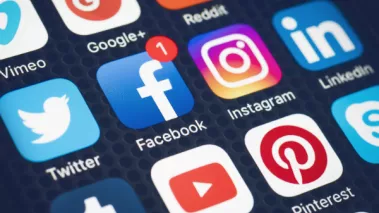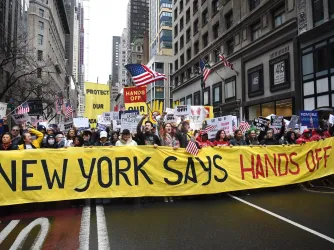Table of Contents
How social media companies and government actors can improve freedom of expression online

This week, FIRE released a survey of over 200 public universities and colleges that used public records requests to explore how these government actors filter content and block users on their official Facebook and Twitter accounts. Our survey reveals that government institutions have made widespread use of these tools, almost certainly in violation of the First Amendment.
As our report explains in greater detail, Facebook provides several filtering tools that may be used by the administrators running an institution’s Facebook page. These include a series of “profanity filters,” which automatically remove comments or posts that contain words included on secret lists generated by Facebook, based on words or phrases “most commonly reported” by users as offensive. This list may be supplemented by a customizable blacklist, allowing institutions to automatically remove comments or posts that contain words the institution decides to block. Twitter does not have a similar feature, but both Facebook and Twitter allow institutions to block individual users.
Fortunately, there are steps that both social media entities and government actors (like public colleges and universities) may readily take to mitigate the possibility that the tools provided by Facebook and Twitter might be abused to limit freedom of expression.
First, as FIRE and the Electronic Frontier Foundation told Facebook’s Mark Zuckerberg in a letter sent this week, social media companies can discourage government actors from abusing these tools through a variety of means. For example, they can distinguish between accounts operated by government actors and non-government actors, and limit the tools available to government actors that do not have a public-facing content policy. That would require public officials to consider the First Amendment ramifications of filtering or moderating content, even if they ultimately don’t comply with its requirements.
Social media companies could also insist on transparency, both their own and from their users. Facebook, for example, should make public the list of words utilized by its profanity filters, allowing the public to know what content government actors will automatically remove if the public actors use the filters. Social media companies should alert users when a government actor has removed or hidden their comments, and require public officials to list a reason when they block users. While private companies like Facebook and Twitter are not bound by the First Amendment, they should not stand by when government actors — who are legally bound by the First Amendment — censor speech on their platforms.
Public officials should also take steps to reduce the likelihood that their use of social media might run afoul of the First Amendment. First, they should craft a clear, public policy concerning the purpose of their social media accounts and — after they’ve ensured that the policies are themselves constitutional — enforce those regulations consistently. They should provide their social media staff with training on the First Amendment. Institutions should keep a log of removed content or blocked users, explaining the purpose in doing so. And, of course, they should avoid blocking particular words.
These are also steps that private colleges and universities should take. While not obligated by the First Amendment, many private institutions of higher education commit themselves, through policy or by virtue of their accreditation, to advancing freedom of expression.
FIRE is, of course, happy to provide free guidance on formulating policies — whether for the virtual world or the physical campus — that facilitate, rather than frustrate, freedom of expression.
Recent Articles
Get the latest free speech news and analysis from FIRE.

He refused to censor his syllabus — so Texas Tech cancelled his class

Fandom’s lighthouse in a sea of censorship

FIRE statement on Stephen Colbert’s James Talarico interview and continued FCC pressure
